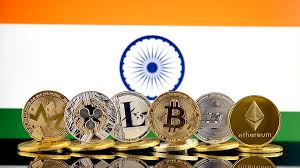AUTHOR : SAYYED NUZAT
DATE : MAY 16, 2024
Introduction to Instant Crypto Payments
Instant crypto payments refer to the ability to transfer digital currencies swiftly and securely, bypassing traditional banking systems. This method enables individuals and businesses to send and receive payments instantly; thus, it removes the necessity for intermediaries like banks. As a result, it not only simplifies transactions but also boosts efficiency by circumventing conventional financial institutions.
Understanding the Indian Market for Cryptocurrency
India has witnessed a surge in cryptocurrency adoption in recent years, driven by factors such as increasing internet penetration, smartphone usage, and a growing tech-savvy population. However, despite regulatory uncertainties, the Indian market nonetheless shows immense potential for the widespread adoption of cryptocurrencies.

Challenges in Traditional Payment Systems
Traditional payment systems[1] in India suffer from several limitations, including slow processing times, high transaction[2] fees, and limited accessibility, especially in rural areas. These challenges have led to a growing [3]demand for alternative payment solutions, like instant crypto payments.
Advantages of Instant Crypto Payments
Instant crypto payments[4] offer several advantages over traditional payment methods. These include lower transaction fees, faster processing times, enhanced security through encryption and decentralized[5] networks, and greater financial inclusivity, especially for unbanked populations.
Popular Cryptocurrencies in India
Bitcoin remains the most popular cryptocurrency in India, followed by Ethereum, Ripple, and others. These digital assets are actively traded on various cryptocurrency exchanges, allowing users to buy, sell, and store them securely.
How Instant Crypto Payments Work
Instant crypto payments rely on blockchain technology, a decentralized ledger system that records all transactions in a secure and transparent manner. When a payment is initiated, it is verified by network nodes and subsequently added to the blockchain, thereby ensuring immutability and trust.
Regulatory Environment in India
The regulatory landscape for cryptocurrencies in India is evolving, with authorities expressing both caution and interest in digital assets. While the government has not yet introduced comprehensive regulations, recent developments suggest a more favorable approach towards blockchain technology and its applications.

Security Concerns and Solutions
Security remains a primary concern in the realm of instant crypto payments. However, advancements in encryption techniques, multi-factor authentication, and secure wallet solutions have bolstered the security of digital transactions, minimizing the risk of fraud and hacking.
Adoption Rates and Trends
Despite regulatory uncertainties, the adoption of instant crypto payments is on the rise in India, driven by factors such as increasing awareness, technological advancements, and changing consumer preferences. Businesses across various industries are embracing digital currencies as a viable payment option.
The Role of Blockchain Technology
Blockchain technology serves as the backbone of instant crypto payments, offering a decentralized and tamper-resistant platform for conducting transactions. Its transparency, security, and efficiency make it well-suited for facilitating peer-to-peer payments without the need for intermediaries.
Impact on Businesses
The adoption of instant crypto payments has significant implications for businesses, enabling them to streamline transactions, reduce costs, and expand their customer base. Furthermore, it opens up new opportunities for cross-border trade and investment, fostering economic growth and innovation.

Future Prospects and Growth
The future of instant crypto payments in India looks promising, with ongoing technological advancements and evolving regulatory frameworks. As more businesses and consumers embrace digital currencies, the landscape of financial transactions is poised to undergo a paradigm shift.
Case Studies: Successful Implementations
Several businesses in India have successfully integrated instant crypto payments into their operations, showcasing the feasibility and benefits of this emerging payment method. These case studies serve as examples of how digital currencies can revolutionize the way transactions are conducted.
Comparison with Traditional Payment Methods
In comparison to traditional payment methods, instant crypto payments offer numerous advantages, including lower fees, faster processing times, enhanced security, and greater accessibility. As such, they represent a disruptive force in the world of finance, challenging conventional norms and practices.
Conclusion
Instant crypto payments have emerged as a game-changer in the Indian market, offering a faster, cheaper, and more secure alternative to traditional payment systems. With increasing adoption and technological innovation, digital currencies are poised to reshape the future of financial transactions in India and beyond.
FAQs
- Are instant crypto payments legal in India?
- While the regulatory landscape is still evolving, there are currently no explicit bans on instant crypto payments in India. However, users should stay updated on any regulatory developments.
- How can businesses integrate instant crypto payments into their operations?
- Businesses can integrate instant crypto payments by partnering with payment processors or utilizing cryptocurrency payment gateways that facilitate seamless transactions.
- What are the risks associated with instant crypto payments?
- Risks include price volatility, regulatory uncertainty, security breaches, and potential scams. However, adopting best practices and implementing robust security measures can mitigate these risks.
- Can instant crypto payments be reversed or canceled?
- Unlike traditional payment methods, crypto transactions are irreversible once confirmed. Therefore, users should exercise caution and verify transaction details before proceeding.
- What are the tax implications of using cryptocurrencies for payments?
- Tax regulations regarding cryptocurrencies vary by jurisdiction. In India, users are required to report crypto transactions and pay applicable taxes as per the Income Tax Act.

